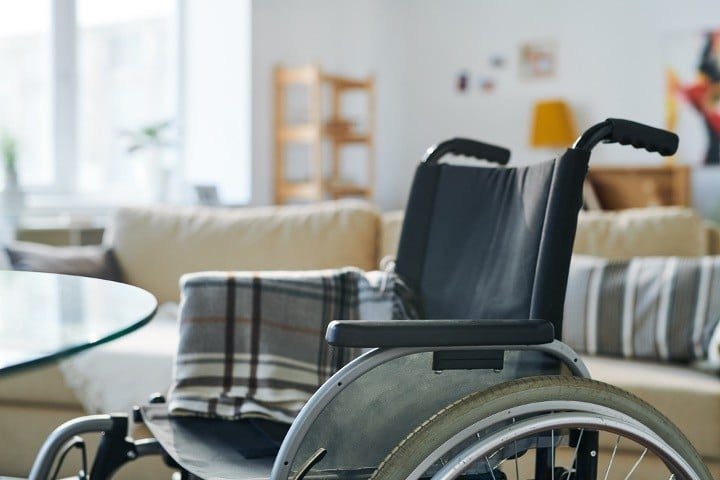
A disabled Canadian veteran who had been petitioning Veterans Affairs Canada (VAC) for a wheelchair lift for her home was shocked when an official suggested she submit to euthanasia instead.
Retired corporal Christine Gauthier, 52, “was injured in an Army training accident in 1989, suffering permanent damage to her knees and her spine,” reported the Daily Mail. “She competed in the 2016 Paralympic Games and Prince Harry’s 2016 Invictus Games as a canoeist, power-lifter, and indoor rower.”
Clearly, this is a woman who, despite her disabilities, has not given up on life.
She began seeking assistance from VAC for the chairlift in 2017 and was met with repeated delays.
“It has isolated me greatly because I have to crawl down on my butt with the wheelchair in front of me to be able to access my house,” she told Global News.
After two years in which VAC failed to come through with the lift, Gauthier said, a caseworker told her over the phone, “If things are so ardent at this point and you just can’t keep going on, then you know we can assist you with aid to die.”
“I was like, ‘I can’t believe that you will … give me an injection to help me die, but you will not give me the tools I need to help me live,’” Gauthier recalled. “It was really shocking to hear that kind of comment.”
Gauthier’s is at least the fifth such incident to come to light in recent weeks.
“Veterans Affairs minister Lawrence MacAulay tried to blame a single female official, and yet even if that is the case she hardly dreamt up the appalling suggestion out of thin air but offered a fatal solution that experts say is becoming far too common in Canada,” wrote the Daily Mail’s Tom Leonard.
Leonard observed:
Canada, a country that prides itself on its open-mindedness and tolerance, has the most permissive rules on euthanasia in the world — and the results have been frankly terrifying.
Last year, more than 10,000 people in Canada — astonishingly that’s over three percent of all deaths there — ended their lives via euthanasia, an increase of a third on the previous year. And it’s likely to keep rising: next year, Canada is set to allow people to die exclusively for mental health reasons.
He cited several horror stories of Canadians with non-life-threatening illnesses being helped to their deaths by healthcare workers. Among them: a 71-year-old man who, hospitalized after a fall, was euthanized within a month — for a “terminal” condition that an autopsy revealed he didn’t have; the mother of a 25-year-old woman with cerebral palsy who “said a hospital doctor in Newfoundland actually told her she’d be ‘selfish’ if she didn’t consider pursuing the euthanasia option”; and a man with a degenerative brain disorder who secretly recorded a hospital’s director of ethics(!) telling him it would cost “north of $1,500 a day” to keep him in the hospital and asking if he “had an interest in assisted dying.”
Canada’s euthanasia laws represent “probably the biggest existential threat to disabled people since the Nazis,” University of British Columbia professor Tim Stainton told Leonard.
Much of this can be laid at the feet of socialized medicine, which drives up demand for healthcare while reducing its supply via price controls. Eventually, the system cannot keep up with the demand, and services are curtailed — starting with patients having expensive, chronic conditions. It’s no coincidence that the Nazis’ extermination program grew out of Germany’s preexisting medical socialism.
Prime Minister Justin Trudeau called VAC’s euthanasia recommendations “absolutely unacceptable” and vowed to change protocols to ensure such things never happen again. But as long as the state is in the business of taking care of people, the people can expect substandard care and suggestions, if not demands, that they off themselves to keep the system afloat.
Ultimately, though, “the cheapening of human life,” as Leonard put it, is the cause of Canada’s — and the rest of the West’s — increasing acceptance of euthanasia. Although they derided it, the Nazis correctly identified high regard for life — including the lives of the disabled — as a product of Christianity. As Westerners abandon the faith, they also lose out on its many temporal benefits.



